Discover What's Your Problem?
What's Your Problem?

What's Your Problem?
Author: iHeartPodcasts and Pushkin Industries
Subscribed: 1,828Played: 112,423Subscribe
Share
© 2026 Pushkin Industries 2025
Description
Every week on What's Your Problem?, former Planet Money host Jacob Goldstein talks with entrepreneurs and engineers tackling the biggest challenges at the forefront of technology. How do you make a trip to space as routine as a plane flight? How do you turn solar energy into clean fuel? How do you use AI to stop deadly infections before they spread? We hear a lot these days about how the world is getting worse. What's Your Problem? learns from the thinkers and doers trying to make our future better.
iHeartMedia is the exclusive podcast partner of Pushkin Industries.
186 Episodes
Reverse
Jonny Dyer is the founder and CEO of a satellite company called Muon Space. The company’s first big project is a satellite constellation called FireSat. Jonny’s problem is this: How do you capture data from space to help manage wildfires around the world in near-real time? In this episode, Jonny explains: How smartphone tech inspired smaller, cheaper satellites. Why fighting wildfires is still shockingly primitive. Why China does not distinguish between commercial and military satellites. Why data centers in space might arrive by 2035. Connect with us: Follow Jacob Goldstein on LinkedIn, X and Instagram Email us at problem@pushkin.fm Follow Pushkin on Instagram, LinkedIn or X Listen to Jacob’s other show, Business History To listen to the show early and ad free, sign up for Pushkin+ See omnystudio.com/listener for privacy information.
After bacteria were discovered, it took scientists 200 years to figure out that they cause disease. If scientists had made the link sooner, hundreds of millions of lives could have been saved. In his recent book So Very Small, Tom Levenson, a professor of science writing at MIT, tells the amazing story of germ theory, and argues that our worldview can prevent us from seeing what is right in front of us – even when lives are at stake.See omnystudio.com/listener for privacy information.
Evan Ratliff co-founded a publishing startup in 2011. Now he hosts a podcast called Shell Game. In the latest season of the show, Evan creates a company run by AI agents. The project is absurdly funny – Evan calls it an office satire – but it also illuminates the power and limits of AI agents.See omnystudio.com/listener for privacy information.
Patrick Hsu is the co-founder of Arc Institute, which is integrating AI models and biological research. Patrick’s problem is this: How can you use AI to make biological research more efficient – and ultimately to find cures for Alzheimer’s and other complex diseases?See omnystudio.com/listener for privacy information.
In recent decades, medical research has fundamentally changed how we think about heart disease. This fresh understanding has opened up new ways to prevent heart attacks. Eric Topol is a cardiologist and the founder of the Scripps Research Translational Institute in San Diego. Eric’s problem is this: How can doctors use recent technological developments to do a better job at preventing heart attacks?See omnystudio.com/listener for privacy information.
Samir Ibrahim is the co-founder and CEO of SunCulture. When he started the company, he thought he was solving a simple problem: How do you sell solar-powered pumps to help poor farmers irrigate their land? It turned out, he was working on something much bigger: How do you help poor farmers get richer, and create a giant new market from scratch?See omnystudio.com/listener for privacy information.
Nabiha Saklayen is the co-founder and CEO of Cellino. Nabiha’s problem is this: How can you make personalized stem cell therapies quickly and cheaply? Induced pluripotent stem cells, or IPSCs, have shown tremendous promise as treatments for illnesses like Parkinson’s, leukemia, and heart disease. On today’s show, Nabiha explains why IPSC manufacturing is still mostly done by hand, how her background in physics and lasers led her into biology, and what it takes to try and build tiny, automated cell factories.See omnystudio.com/listener for privacy information.
Please take our survey https://tinyurl.com/wyplistenersurvey about the show! Tell us what you want to hear, and what would make it better. Tim Bucher is a farmer, and the founder and CEO of Agtonomy. Tim's problem is this: How do you build an autonomous tractor that can work for specialty crops like grapes, olives, apples, and almonds? On today’s show, Tim explains what makes certain farming processes so difficult to automate, and how autonomy may soon change how we eat.See omnystudio.com/listener for privacy information.
Mitch Lee is the co-founder and CEO of Arc Boats. Mitch's problem is this: How do you build competitively priced electric boats?On today’s show, Mitch explains why water makes electrification so hard, the techno-economic puzzle of building giant battery packs, and how Arc’s high-end wake sport boat opened the door for a new generation of hybrid-electric tugboats.See omnystudio.com/listener for privacy information.
Nina Mohanty is the founder and CEO of Bloom Money. Nina’s problem is this: How do you build an app to help immigrants manage their money? On today’s show, Nina talks about bringing a saving and lending practice into the 21st century, navigating regulators who’ve never seen anything like it, and what global traditions can teach us about the future of money.See omnystudio.com/listener for privacy information.
What's Your Problem? host Jacob Goldstein has a new show: Business History. How did Hitler’s favorite car become synonymous with hippies? What got Thomas Edison tangled up with the electric chair? Did someone murder the guy who invented the movies? On Business History, Jacob and fellow former Planet Money host Robert Smith examine the surprising stories of businesses big and small and find out what you can learn from those who founded them.In this episode: The inventor that transformed America and the world. Thomas Alva Edison registered over one thousand patents before he died in 1931—and we can thank him for advances in electric power, communications technology, music recording and even the movies. But his biggest breakthrough doesn't get nearly enough attention. In many ways, Edison invented modern inventing. Jacob and Robert they trace the life story of a scrappy young boy with bad hearing who almost singlehandedly invented R&D. This is the first of a three part series on Edison—if you want to hear the full series, ad-free, right now, join Pushkin+ on the Business History show page on Apple Podcasts or at pushkin.fm/plus. Find Business History (00:10) on Apple Podcasts, Spotify, YouTube, or wherever you get podcasts.See omnystudio.com/listener for privacy information.
Mike Blue is the CEO of HistoSonics. The company recently developed a device that uses ultrasound to destroy tumors.On today’s show, Mike talks about how a garage-built prototype became an FDA-approved machine; changing the company’s story after a failed clinical trial; and why he loves being a salesman but hates most sales pitches.See omnystudio.com/listener for privacy information.
Chris Urmson is the co-founder and CEO of Aurora, a company trying to bring autonomous driving to commercial trucking.Chris led a team at the 2004 DARPA challenge that launched the autonomous vehicle industry. Then he held a senior role at Google’s self-driving car project, which later became Waymo.On the show today, he talks about the long arc of autonomous driving, why he left Google, and the future of autonomous trucking.See omnystudio.com/listener for privacy information.
Michael Porter is the Chief Technology Officer of OceanWell.Michael's problem is this: How can you desalinate water at the bottom of the ocean – and deliver it to land at a cost that’s competitive with other sources of fresh water?On today’s show, Michael explains how he built OceanWell’s prototype in his kitchen, what it takes to make a system that’s less disruptive to marine life, and why innovations from the oil and gas industry are making his work possible.See omnystudio.com/listener for privacy information.
Justin Lopas is the COO and co-founder of Base Power, a battery and power company based in Texas. Justin’s problem is this: How can you deliver more energy to more people without having to build so much more grid?On today’s show, Justin explains why the grid needs a major upgrade, and how putting batteries next to homes could help. Also: what Texas’ embrace of renewable energy could mean for the future of power in the U.S.See omnystudio.com/listener for privacy information.
Fletcher Wilson is the CEO and co-founder of Throne Labs.Fletcher’s problem is this: How can you create public toilets that people actually want to use?On today’s show, Fletcher explains how his company is trying to make public bathrooms cleaner, safer and more accessible. The conversation also points to a bigger idea: why it’s so hard for cities to build and maintain pretty much anything.See omnystudio.com/listener for privacy information.
Boris Sofman is the co-founder and CEO of Bedrock Robotics. Boris' problem is this: How do you teach machines not just to drive, but also to work: to grade roads, move heavy objects and dig big holes at construction sites. On today’s show, Boris talks about how his work at Waymo led him to found Bedrock, and he explains how autonomous construction equipment could help unleash an American building boom.See omnystudio.com/listener for privacy information.
Justin Kolbeck is the co-founder and CEO of Wildtype, a company making seafood without killing fish. Their first product is cultivated salmon, which is made from real salmon cells that are grown in a stainless steel vat.Justin's problem is this: How to sell no-kill, vat-grown salmon for the same price, or better, as wild-caught salmon? On today’s show, Justin explains how Wildtype will scale, what’s going on across the cultivated and plant-based meat industries, and how new state bans on cultivated foods are shaping the future of his business.See omnystudio.com/listener for privacy information.
Ed Conway is an economics journalist and author of the book “Material World: The Six Raw Materials that Shape Modern Civilization.” On today’s show, Ed reveals how three of those often-overlooked materials—iron, copper, and sand—shaped human advancement from the Renaissance to the Industrial Revolution to the digital age. And he talks about what they mean for our future.See omnystudio.com/listener for privacy information.
Shashank Samala is the CEO and co-founder of Heirloom, a carbon capture start-up. His problem is this: Can you use crushed up rocks to permanently suck carbon out of the atmosphere? And can you do it cheaply enough to have a global impact?On today’s show, Shashank explains why he believes rocks could be the backbone of carbon capture, how his childhood in India shaped his outlook on climate change, and how government policy is shaping today’s direct air capture industry.See omnystudio.com/listener for privacy information.










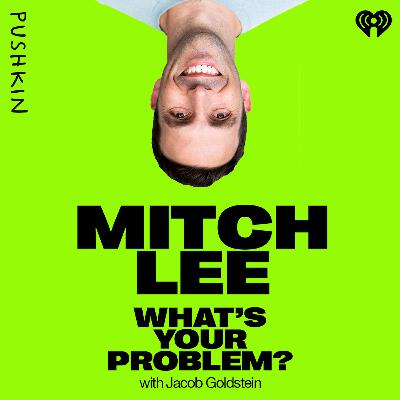

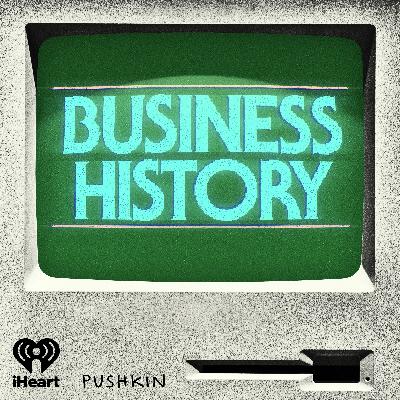
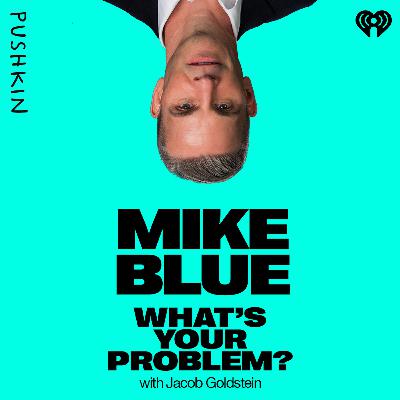
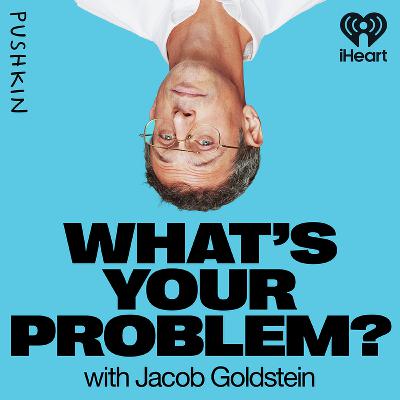


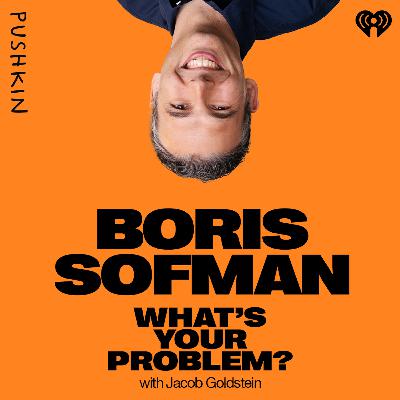
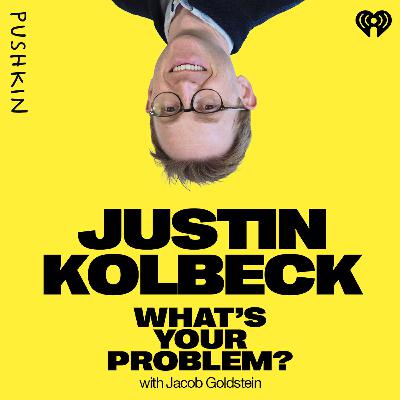
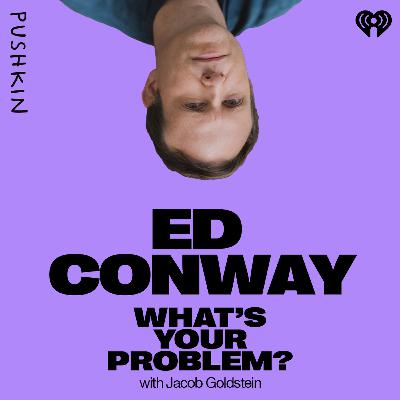



Why is the audio so quiet on the actual show? Into and ads are fine.
great podcast on entrepreneurs in the same vein as Planet Money. Highly recommend!
u u 7th y 6777 u 7776 u 776667676766655 6th 6666656666666566666 6th 6665666665666666666 7th 666456526
Pretty good podcast overall. But some 40% ads that it's close to being insufferable.
Appreciative for sharing such mind blowing information. https://www.mygiftcardsite.page/
isn't there a rule (i will go as far as it being a law) regarding "I go you go" situation discussed?
Pretty good content, but SO MANY ADs! There are four ad breaks in every ~25 minute episode. Something like 8 or 10 ads. It's too much!!
Am really excited for this new series of podcasts!